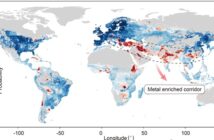Nemaslug is a microscopic beneficial nematode Phasmarhabditis hermaphrodita for the control of a wide range of slug species in a range of horticultural crops and in all outdoor and protected soft fruit including strawberries
Serifel, based on Bacillus amyloliquefaciens strain MB1600 is a protectant fungicide for the reduction of damage by Botrytison protected strawberries and many other fruits
Both products are easily integrated with other products within a programme
BASF Agriculture acquired Becker Underwood, the largest entompathogenic nematode producer in the world, several years ago and integrated it into the organisation as BASF Agricultural solutions. Rob Storer for BASF notes that there is increasing pressure for effective pest and disease control in fruit and vegetables crops, but there are also more legislative and practical challenges
“In speciality crops, biologicals are the future and will play an important role in fruit production in crops such as strawberries and vegetables. Soft fruits have become more regular purchases in the weekly shop but shoppers demand high quality produce with no pests or diseases.
We need effective alternative options such as our Nemasys/Nemaslug and Serifel to boost yield and protect quality of these speciality crops. In the last few years we have lost two molluscicides – methiocarb in 2015 and metaldehyde in 2020.Growers are actively looking for alternatives to control slugs.”
Aneeta Gupta of BASF specialities explains that Nemaslug is a revolutionary slug control product, containing the nematodePhasmarhabditis hermaphrodita formulated in an inert carrier. “Amongst other crops, it is recommended in all outdoor and protected soft fruit and horticultural crops to control a wide range of slug species. Slugs thrive in cool, wet conditions, found in protected crops. They feed and make holes in leaves and fruit making the produce unmarketable.“
Nemaslug is applied applied as a drench or directly to the crop using nozzles producing a medium to coarse spray. Soil temperatures should be between 5°C and 30°C. Applications in direct sunlight should be avoided, with evening application being preferable. The application window for Nemaslug is normally between March and October.
Nemaslug applications inundate the soil with millions of juvenile nematodes per hectare. The microscopic nematode actively seeks out slugs immediately, entering the slugs through natural body openings, and releasing bacteria which kill the pest safely and rapidly. Within 3 days Nemaslug stops the slugs from feeding and they generally die within 7 days after application. The nematode reproduces inside the dead pest, releasing the next generation of hungry nematodes, which then disperse and search for further prey.
Nemaslug has been successfully applied with drip or boom irrigation systems. It is best to start control early in order to target younger smaller slugs before they do any damage. One application of Nemaslug provides up to 6 weeks of control, longer than other treatments; a second application can follow if slug pressure is high.
Mr Storer thinks that Nemaslug provides an important tool for slug control. “It works very well and is an excellent alternative to the already limited chemical molluscicides options; Nemaslug is safe to use, has no water pollution issues, no resistance issues, necessitates no protective clothing and can be used on both conventional crops to reduce residues and in organic systems.“
“Biological control of slugs in specialist crops has to be the best way forward and I am sure many growers will be moving towards this method in order to satisfy the exacting market requirements.“
“We also have Serifel in strawberries so 2 important biological solutions from BASF. Serifel is based on Bacillus amyloliquefaciens strain MB1600. Formulated as a concentrated wettable powder, it is a protectant fungicide for the reduction of damage by Botrytis on protected strawberries, raspberries, blueberries, loganberries, moderate control in protected tomatoes, aubergines, peppers and chilli peppers and moderate control of Botrytis and Sclerotinia in protected lettuce and other leafy crops such as choi sum, endive, lamb’s lettuce and rocket,“ says Mr Storer.
Serifel is applied at low dose rates, has strong stability in store and shows excellent crop safety. It has a maximum number of treatments of six applications per crop. In strawberries, aubergine, peppers, chilli, tomatoes, its latest time of application is the end of fruiting before senescence sets in (BBCH 89) but in blackberries, blueberries, loganberries, raspberries and rubus hybrid it has no latest time of application.
Mr Storer is confident that BASF will be launching further biological and conventional solutions for fruit, salad and vegetable growers, including a biological insecticide to integrate in with conventional chemistry and also a new biostimulant. ”We are experiencing very exciting times in this biological area and hoping that it will be taken up widely by growers.“




